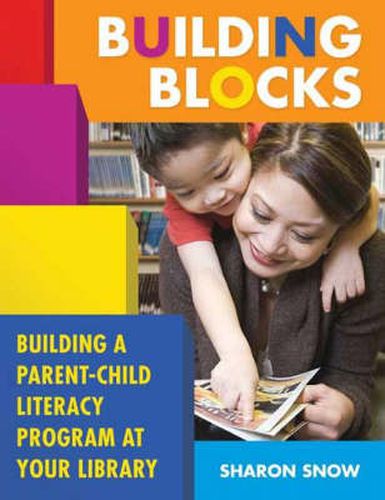Readings Newsletter
Become a Readings Member to make your shopping experience even easier.
Sign in or sign up for free!
You’re not far away from qualifying for FREE standard shipping within Australia
You’ve qualified for FREE standard shipping within Australia
The cart is loading…






Librarians can stay relevant in the twenty-first century when they build on those areas where they have excelled. Service to children is one of those, and a hot topic is emergent literacy, the earliest phases of literacy development. Because parents are a child’s first teacher, they need to understand that children who enter school with a larger vocabulary are more likely to succeed in school and that they can offer experiences for their pre-school children to prepare them for school. This book provides six sessions for a children’s librarian to use to introduce literacy skills to parents of preschool children. These sessions teach parents how to give their child an opportunity to explore and experience new things. Designed to be conducted in two simultaneous units, one for parents and one for children, handouts and activities are included. These are especially helpful for helping parents who will be able to make most of the teaching devices rather than purchasing expensive commercial items.
The hot topic for children’s librarians building their pre-school programming is emergent literacy, the earliest phases of literacy development. A brief introduction to the research in emergent literacy and some examples of successful programs are given.
Because parents are a child’s first teacher, they need to understand that children who enter school with a larger vocabulary are more likely to succeed in school and that they can offer experiences for their pre-school children to prepare them for school. This book provides six sessions for a children’s library to use to introduce literacy skills to parents of preschool children. These sessions teach parents how to give their child an opportunity to explore and experience new things. Designed to be conducted in two simultaneous units, one for parents and one for children, handouts and activities are included. These are especially helpful for parents who will be able to make the most of the teaching devices rather than purchasing expensive commercial items.
This would be especially helpful as a training manual for solo children’s librarians who must use volunteers to conduct the children’s workshop.
$9.00 standard shipping within Australia
FREE standard shipping within Australia for orders over $100.00
Express & International shipping calculated at checkout
Librarians can stay relevant in the twenty-first century when they build on those areas where they have excelled. Service to children is one of those, and a hot topic is emergent literacy, the earliest phases of literacy development. Because parents are a child’s first teacher, they need to understand that children who enter school with a larger vocabulary are more likely to succeed in school and that they can offer experiences for their pre-school children to prepare them for school. This book provides six sessions for a children’s librarian to use to introduce literacy skills to parents of preschool children. These sessions teach parents how to give their child an opportunity to explore and experience new things. Designed to be conducted in two simultaneous units, one for parents and one for children, handouts and activities are included. These are especially helpful for helping parents who will be able to make most of the teaching devices rather than purchasing expensive commercial items.
The hot topic for children’s librarians building their pre-school programming is emergent literacy, the earliest phases of literacy development. A brief introduction to the research in emergent literacy and some examples of successful programs are given.
Because parents are a child’s first teacher, they need to understand that children who enter school with a larger vocabulary are more likely to succeed in school and that they can offer experiences for their pre-school children to prepare them for school. This book provides six sessions for a children’s library to use to introduce literacy skills to parents of preschool children. These sessions teach parents how to give their child an opportunity to explore and experience new things. Designed to be conducted in two simultaneous units, one for parents and one for children, handouts and activities are included. These are especially helpful for parents who will be able to make the most of the teaching devices rather than purchasing expensive commercial items.
This would be especially helpful as a training manual for solo children’s librarians who must use volunteers to conduct the children’s workshop.